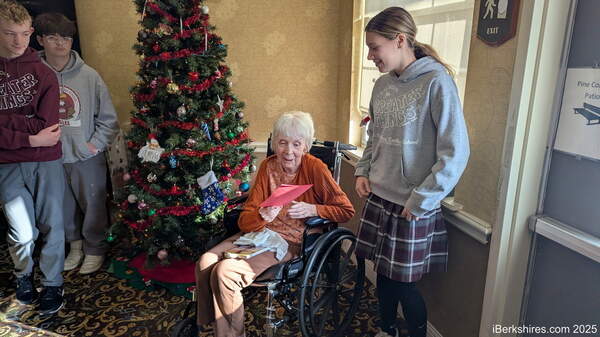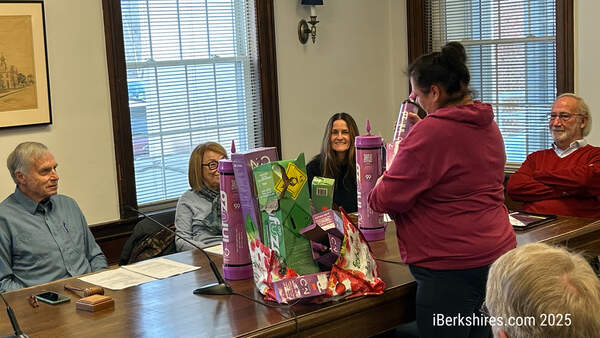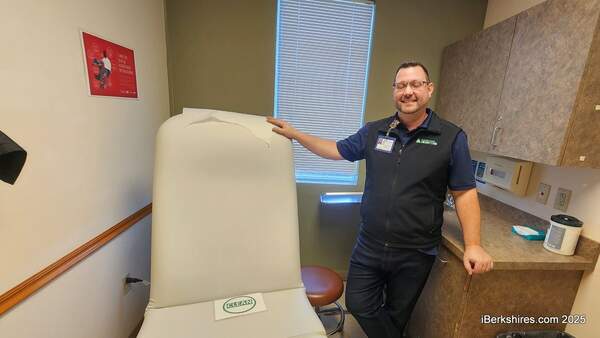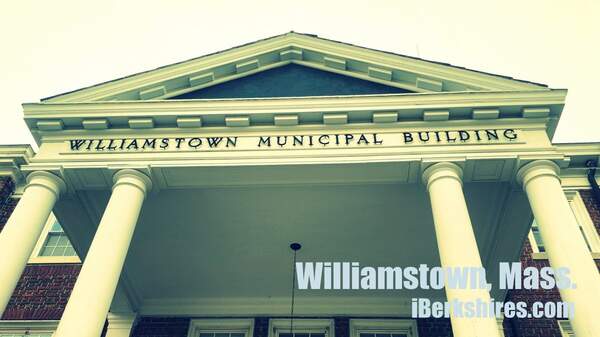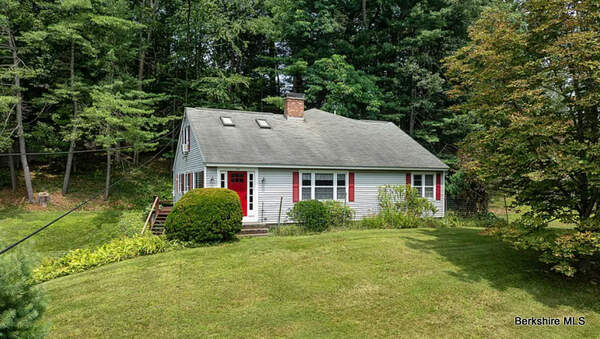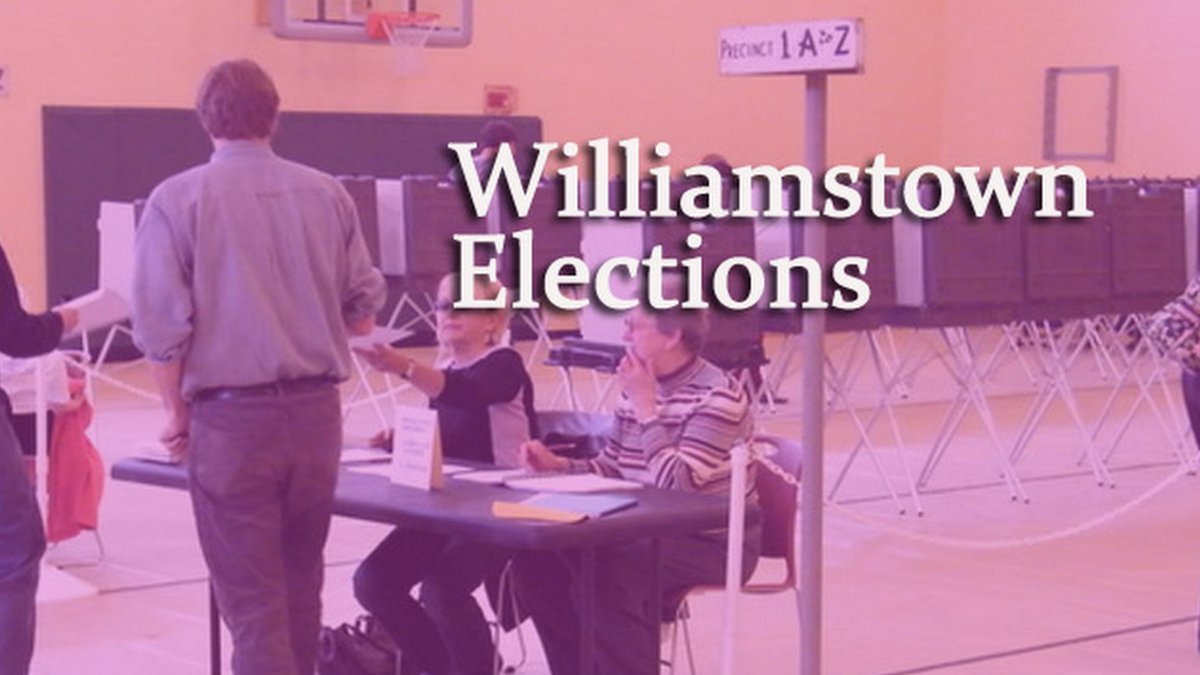
Gardner, Puddester Make Cases for Williamstown Planning Board Seat
WILLIAMSTOWN, Mass. — While many residents view Tuesday's Planning Board races as a referendum on the current board's actions regarding the Waubeeka Overlay District, a pair of candidate forums focused more on the candidates' philosophies and experiences.
At an April 13 League of Women Voters forum featuring three candidates running for a two-year spot on the board, the golf course issue was not raised directly.
An April 26 discussion between the two candidates (Sarah Gardner and Susan Puddester) for a five-year seat saw several mentions of Waubeeka but more discussions about general principles and the candidates' backgrounds.
"The part of the Planning Board where the Planning Board becomes more interesting and less technical is with developing new zoning bylaws," said Sarah Gardner, who was appointed to the board in December to fill an unexpired seat but is running in Tuesday's town election for a full five-year seat. "That's probably what most people think of when they think of the Planning Board. The big case right now has to do with Waubeeka. That's not primarily what the Planning Board does.
.jpg)
"Primarily, it's a permit-granting authority. The other element of the job is to consider rezoning, and we do a new master plan every 10 years."
Of course, at the time of the April 13 and 26 candidates' forums, the Planning Board still was negotiating language on a compromise amendment with the author of a citizens' petition that put the Waubeeka Overlay District bylaw on the May 17 annual town meeting warrant.
On April 26, Gardner told the audience at the forum, telecast on the town's community access television station, WilliNet, that, "Hopefully, we will come up with a compromise that is best for everyone."
Two days later, it appeared such a compromise was in sight. Six days after that, Gardner introduced an amendment that reneged on the board's April 28 agreement and essentially dashed all hope of reaching a compromise with the petitioner.
At the April 26 forum, both Puddester and Gardner talked about the need for the town to expand the tax base, but there were indications that the candidates would have different approaches to the notion of economic development.
Puddester came out of the gate with a statement that the town needs to follow the recommendations of the Economic Development Committee report and do more to attract and retain businesses. She also indicated that the current Planning Board is part of the problem.
"We need a balanced perspective on the Planning Board," Puddester said. "I believe that sometimes we make it too hard to get things done in town, things that could enhance our community. Many of our neighbors told the Economic Development Committee that working with town boards was difficult; there were cumbersome rules and regulations and the town boards should learn to work more collaboratively together."
Gardner, too, referred to that report, which she said "touches on some important issues in town," and she advocated for the creation of a business development board and the creation of a business incubator like the one in Middlebury, Vt.
But Gardner also said the business climate in town is not as dire as some claim.
"A lot of businesses are expanding, and some businesses are extremely successful," Gardner said. "Overland has been successful, and that's a place-based business that takes advantage of the natural beauty and the trails here. Also, Aubuchon Hardware just bought a new site. They're expanding. R.K. Miles is expanding; they're going to have a huge new store over on North Hoosac.
"I think there are a lot of good signs in Williamstown for business."
Puddester was less sanguine about the current business climate.
"We need to increase the number of opportunities in town, and the Planning Board needs to be part of that effort," Puddester said. "The changes recently recommended by the board for home businesses are a step in the right direction, and I support that change. But we need to do more. We need to thoroughly review our list of available sites that are appropriate and attractive for commercial development and be pro-active about rezoning those sites appropriately.
"And we need to reach out, as Sarah said, to talented entrepreneurs who have built successful businesses here, like Chris Kapiloff, Tom Costley and Hugh Daley, and find out from them the positive changes we can make to our laws and procedures to make it easier for someone to start a business in Williamstown."
Perhaps the sharpest contrast drawn between Puddester and Gardner in their hour-long forum was about their respective backgrounds.
Gardner emphasized her 16 years combined experience on the town's Planning Board and Conservation Commission (she first served on the Planning Board in the early part of the 21st century before returning late last year), her professorship at Williams College and her professional experience in the state planning office in New Jersey before she moved to town in 1999.
When the moderator asked the candidates to talk about the work experiences they would bring to the Planning Board, Gardner replied, "How long do I have to answer?"
"A lot of planning is very technical," Gardner said. "Applicants come to us with a subdivision plan, and you have to read multiple pages of site plans and understand the stormwater runoff and the hydrology of the site and site design. … I'm comfortable with that and have been doing it for years."
Puddester rejoined that Planning Board members do not need professional credentials in order to serve the town.
.jpg)
"What you need on the board are people who care about the town, people who bring the town together," Puddester said. "You don't need to be an accountant to sit on the Finance Committee, just someone who has successfully managed their budget and cares about the town. Likewise, you don't need to be an expert on zoning regulations to be a member of the Planning Board. For example, the person who wins this seat will replace an art history professor, and the other members have included some who have worked on farms, some who have worked in the medical field, a lot of different people."
Puddester argued that her professional experience in social work and, specifically, her efforts with the local non-profit Higher Ground give her a perspective that is needed on the Planning Board.
"What I bring to the board from my background in social work is someone who will be a good listener, who works well with others to solve problems, like we did with the Spruces," Puddester said.
Not surprisingly, Gardner, for all intents and purposes an incumbent, and Puddester, a would-be newcomer to the board, drew their sharpest contrast in their opinions of the current board's performance.
"I feel actually like the Planning Board has done a very good job the last several years," Gardner said. "They have been reviewing the bylaws consistently, and they have been quite proactive in the past several years proposing rezoning amendments at town meeting to make the town friendlier to business.
"We're doing that this year, also. This year, we are proposing an amendment that will allow home occupations in more areas than they are currently allowed by right — in other words without going to the Zoning Board to get a special permit. And of course, the proposals coming forward this year to expand the Village Business District to allow the Williams Inn to go downtown."
Puddester painted a different picture of the Planning Board's performance.
"I think we need a different approach on the Planning Board, a more balanced perspective," Puddester said. "One of the most consistent recommendations that came out of the public forums of the Economic Development Committee was that working with town boards was often difficult and burdensome.
"We need to change that."
Then, Puddester added an indirect reference to the nine-month Planning Board process that likely will send competing and conflicting Waubeeka Overlay District amendments to the town meeting floor.
"We need clear guidelines that are easy to understand, and we need to work cooperatively with homeowners and businesses when they bring issues to the board," she said. "This doesn't mean that we'll be ignoring rules or the legitimate concerns of our neighbors, but it doesn't mean property owners need to give something to the Planning Board to get them to consider a change."
The town election is Tuesday, May 10; polls will be open from 7 a.m. to 8 p.m. at Williamstown Elementary School. The ballot can be found here; the forum can be watched on WilliNet here.
Tags: election 2016, Planning Board, town elections,


